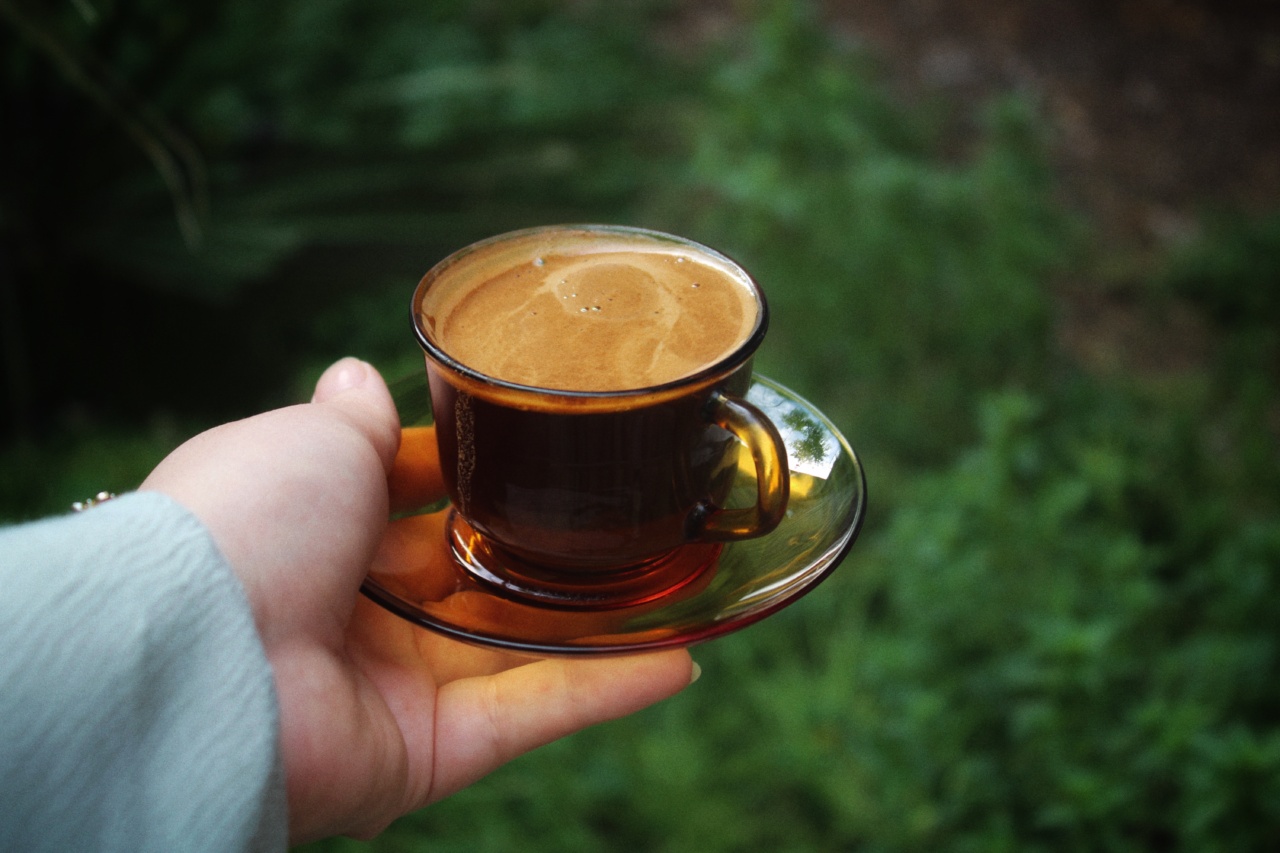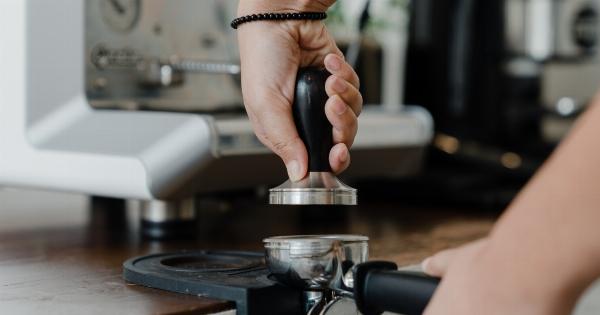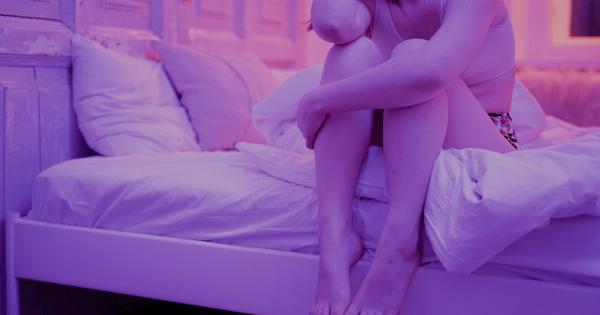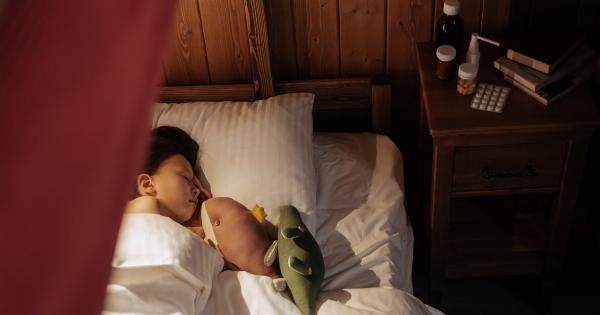Do you rely on a cup of coffee to jumpstart your day? You’re not alone. Coffee is one of the most popular beverages worldwide. It is not just a morning pick-me-up but also a social drink and an essential part of many people’s routines.
What is Caffeine?
Caffeine is a naturally occurring stimulant found in coffee beans, tea leaves, and cacao plants. It acts as a central nervous system stimulant, providing a temporary boost in alertness and energy levels.
When consumed, caffeine blocks the action of adenosine, a neurotransmitter that promotes sleep and relaxation.
How Does Caffeine Affect Sleep?
Caffeine’s stimulating effects can last for several hours, with the peak occurring within 30-60 minutes after consumption.
While it may seem like it helps you stay awake, the truth is that it interferes with the quality and quantity of your sleep.
Here’s how caffeine affects sleep:.
1. Disruption of Sleep Onset
Consuming caffeine, especially in the late afternoon or evening, can delay your sleep onset. Adenosine, which promotes sleep, is blocked by caffeine, making it harder for you to fall asleep at your desired bedtime.
2. Decreased Total Sleep Time
Even if you manage to fall asleep after consuming caffeine, your total sleep time may be reduced. Caffeine is known to shorten the duration of rapid eye movement (REM) sleep, the stage associated with deep sleep and dreaming.
Without sufficient REM sleep, you may wake up feeling groggy and less refreshed.
3. Fragmented Sleep
Caffeine can lead to fragmented sleep. It influences sleep architecture, causing more awakenings and lighter, less restorative sleep.
These disruptions can prevent you from experiencing deep, restful sleep, leaving you feeling tired and less alert during the day.
4. Increased Nighttime Urination
Caffeine is a diuretic, meaning it promotes increased urine production. If you consume caffeine close to bedtime, you may experience the need to urinate frequently during the night. This can further disrupt your sleep and lead to fragmented rest.
5. Delayed Melatonin Release
Melatonin is a hormone that regulates sleep-wake cycles. Consuming caffeine in the evening can delay the release of melatonin, making it harder for you to fall asleep.
Melatonin levels typically rise as the evening progresses, signaling your body that it’s time to sleep. Caffeine can disrupt this natural rhythm and keep you awake for longer.
Individual Variations in Caffeine Sensitivity
It’s important to note that everyone reacts to caffeine differently. Some individuals have a high tolerance for caffeine and may be less affected by its sleep-disrupting effects.
Others may be more sensitive to even small amounts of caffeine, experiencing pronounced sleep disturbances.
Factors that influence individual caffeine sensitivity include:.
1. Genetics
Genetic variations can affect how quickly your body metabolizes and eliminates caffeine.
2. Body Weight and Composition
Caffeine affects individuals with lower body weights differently than those with higher body weights. People with more body fat tend to experience a weaker caffeine response.
3. Regular Caffeine Consumption
Regular caffeine users may develop a tolerance to its effects, meaning they need higher doses to experience the same level of alertness. However, tolerance doesn’t negate the sleep-disrupting properties of caffeine entirely.
4. Medications and Health Conditions
Some medications and health conditions can interact with caffeine and amplify its effects.
If you have certain medical conditions or take specific medications, it’s essential to consult your healthcare provider about the potential impact of caffeine on your sleep.
Tips for Managing Caffeine Consumption and Sleep
If you enjoy the taste of coffee and want to improve the quality of your sleep, here are some tips to consider:.
1. Limit Consumption
Avoid consuming caffeine in the late afternoon or evening, as it can interfere with your ability to fall asleep. Instead, enjoy your cup of coffee earlier in the day and switch to decaffeinated beverages later on.
2. Opt for Decaffeinated Alternatives
If you still crave a warm beverage in the evening, choose decaffeinated coffee or herbal teas that promote relaxation, such as chamomile or lavender.
3. Watch for Hidden Sources of Caffeine
Be mindful of other sources of caffeine, including energy drinks, soda, chocolate, and some medications. Read labels carefully and consider limiting or avoiding these products, especially close to bedtime.
4. Create a Relaxing Bedtime Routine
Establishing a calming pre-sleep routine can help signal your body that it’s time to wind down. Engage in activities such as reading, taking a warm bath, or practicing gentle stretching to promote relaxation and prepare yourself for sleep.
5. Create a Sleep-Friendly Environment
Your sleep environment plays a crucial role in your ability to fall asleep and stay asleep. Ensure that your bedroom is cool, quiet, and dark. Use blackout curtains, earplugs, or a white noise machine if necessary.
6. Monitor Your Personal Sensitivity
Pay attention to how caffeine consumption impacts your sleep quality. If you find that even small amounts of caffeine affect your sleep, consider eliminating it entirely or limiting it to morning consumption only.
Conclusion
Caffeine is a widely consumed stimulant that can have detrimental effects on sleep if not managed appropriately.
While it may provide a temporary energy boost, it can disrupt sleep onset, decrease total sleep time, and cause fragmented and lighter sleep. Individual variations in caffeine sensitivity further influence its impact on sleep quality. By understanding your personal sensitivity to caffeine and taking steps to manage its consumption, you can ensure better sleep and overall well-being.































